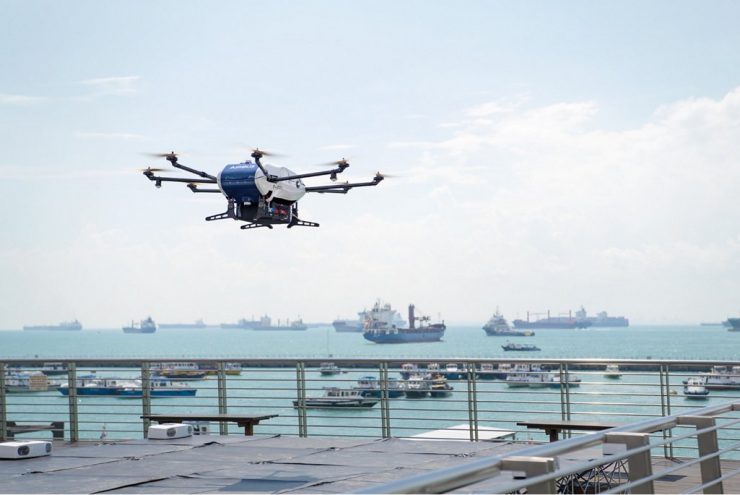Airbus has collaborated with Boeing to write a report warning that air traffic management (ATM) technology must be significantly modernised to manage countless new small aircraft that will occupy future airspace, according to FlightGlobal.
The two companies presented a common vision at the ICAO June 15 ANC meeting of a digitally-based ATM system covering airspace from the ground up to near earth orbit.
The paper, to be released in the coming weeks, will describe how rapidly increasing numbers of drones, and possible future small air taxis, will require new ATC systems, says Mark Cousin, chief executive of Airbus’s Silicon Valley-based innovation division Acubed. Acubed contributed to Airbus’s work on the paper, but parent Airbus led the company’s efforts. Airbus “will be issuing a joint paper with Boeing on the future air traffic management system”, Cousin tells FlightGlobal. “It’s a cooperative effort.” The paper will be released in “a week or two”, Cousin adds. It was distributed to ICAO in June 2020.
Boeing did not immediately respond to a request for comment about its role in the effort.
The companies are writing the report “to lay” the problem, with the goal of spurring action by regulators like the Federal Aviation Administration.
The report will describe “what direction air traffic management needs to take in the coming years in order to cope with the vastly increasing complexity of air traffic management that is going to come with the integration of new vehicles”, says Cousin.
The exponential growth of the drone industry is partly driving the effort. The FAA’s current number of drone registrations stands at 1.7 million, up from 1 million in January 2018, according to government figures.
In addition to drones, future skies could be crowded with air taxis envisioned as part of the urban air mobility concept. Dozens of companies are now working on aspects of air-taxi development, foreseeing the small craft zipping above crowded cities, carrying several passengers on short trips.
Acubed has been working on advanced air traffic management technology via a project called Airbus UTM, short for unmanned traffic management. It has developed air traffic simulations tools, and through a company called DroneDeploy offers its Low Altitude Authorization and Notification Capability.
Airbus subsidiary Metron Aviation has also participated in NASA’s Advanced Air Mobility National Campaign to help develop a vision for a future air-traffic management system.
Future airspace management may need to be significantly different from today’s systems, which the FAA has been working to upgrade through a delayed, multi-year programme called NextGen.
Cousin envisions a future system in which aircraft have much more-advanced onboard technology that could largely handle traffic management. Such systems could potentially detect collision threats, with aircraft responding automatically, he says.
That type of technology could possibly allow air traffic controllers to clear aircraft to operate “in a particular area”, rather that continually directly each aircraft’s movement, says Cousin.
(Image: Airbus)
For more information visit:
ANC Talks: A new digital era of aviation and the path forward for airspace and traffic management




